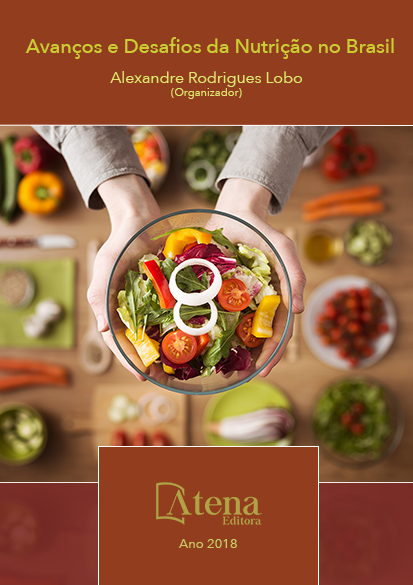
MEMÓRIAS AFETIVAS REFERENTES À ALIMENTAÇÃO: VALORIZANDO A SOBERANIA ALIMENTAR E AS DISCIPLINAS SOCIAIS NO CURSO DE NUTRIÇÃO
O ser humano possui a singularidade
da cultura. É um ser biopsicossocial. De tal
forma, compreender seu ato de comer vai além
da questão biológica, estando intimamente
ligado às questões sociais, culturais e afetivas.
Pouco valorizadas no curso de nutrição, as
disciplinas sociais são de suma importância
para a compreensão do indivíduo, melhor
abordagem nutricional e resultados mais
efetivos. Este trabalho objetivou valorizar as
disciplinas sociais no curso de Nutrição e
contribuir para a formação de profissionais
mais capacitados. Realizou-se uma pesquisa
de campo, na qual os estudantes entrevistaram
uma pessoa adulta ou idosa e indagaram
sobre suas memórias afetivas referentes à
alimentação. Posteriormente, realizou-se uma
recontextualização das entrevistas na forma de
algum gênero literário. O trabalho foi realizado
com os 35 alunos da disciplina de Antropologia
da Alimentação, do curso de Bacharelado em
Nutrição do Instituto Federal do Ceará - Campus
Limoeiro do Norte. As entrevistas obtiveram
relatos variados, desde situações mais cômicas,
como comida relacionada a brincadeiras de
infância, até situações mais dramáticas, como
a escassez de alimentos, e inúmeras outras
histórias. Pôde-se perceber que os estudantes
passaram a ter mais consciência sobre a função
e a importância da alimentação no âmbito social e
afetivo, bem como passaram a assimilar melhor
os conteúdos ministrados em sala de aula.
Desta forma, recomenda-se a incorporação de
atividades desse tipo à formação acadêmica em
Nutrição e sua extensão aos demais âmbitos de
ensino, tal como o básico.
MEMÓRIAS AFETIVAS REFERENTES À ALIMENTAÇÃO: VALORIZANDO A SOBERANIA ALIMENTAR E AS DISCIPLINAS SOCIAIS NO CURSO DE NUTRIÇÃO
-
DOI: 10.22533/at.ed.93218021213
-
Palavras-chave: Antropologia cultural; Alimentação; Memória; Docência.
-
Keywords: Cultural Anthropology; feeding; memory; teaching
-
Abstract:
The humans have the singularity
of culture. It is a biopsychosocial being. In
such a way, understanding their act of eating
goes beyond the biological question, being
linked closely to social, cultural and affective
questions. The social disciplines in the
Nutrition course are little valued, but they are
of paramount importance to the understanding
of the individual, better nutritional approach and
more effective results. This work aimed to value
the social disciplines in the Nutrition course
and contribute to the formation of more qualified professionals. A field survey was
conducted in which the students interviewed an adult or elderly person and inquired
about their affective memories concerning food. Subsequently, a recontextualization
of the interviews was carried out in the form of some literary genre. The work was
carried out with the 35 students of the discipline of Food Anthropology, of the Bachelor
of Nutrition course of the Federal Institute of Ceará - Limoeiro do Norte Campus. The
interviews have had mixed reports ranging from more comical situations such as food
related to childhood games to more dramatic situations such as food shortages and
countless other stories. It was noticed that students became more aware of the role and
importance of food in the social and affective sphere, as well as began to assimilate the
contents taught in the classroom. Therefore, it is recommended to incorporate activities
of this type into the academic training in Nutrition and its extension to other areas of
teaching, such as the basic.
-
Número de páginas: 15
- Ana Carmem de Oliveira Lima


